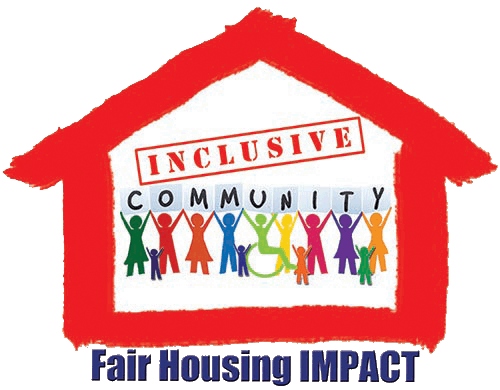 | Miami Valley Fair Housing Center |  | |||||
| info@mvfairhousing.com | ||||||
 |
FAIR HOUSING MONTH 2025Open Housing, Still a Promise
Miami Valley Fair Housing Center and the Dayton REALTORS® invite you to join us for our annual celebration of Fair Housing Month. Click here to register.
Thursday, April 2, 2026
Sinclair Conference Center Dayton, Ohio The day begins at 8:30 AM with an interactive fair housing workshop accredited for continuing education: Fair Housing and Disability Awareness. This interactive fair housing workshop helps REALTORS® better understand their role in supporting people with disabilities—an often overlooked minority—in achieving Open Housing for All. Certified for three hours of continuing education credit through the Ohio Division of Real Estate, the course is presented by professionals from the Access Center for Independent Living and the Miami Valley Fair Housing Center. Participants learn about Fair Housing Act requirements, reasonable accommodations and modifications, and accessibility in housing design. Hands-on activities place REALTORS® in experiential simulations to build awareness of mobility, sensory, cognitive, and speech disabilities. The second workshop begins at 10:00 AM. and is also accredited for one hour of continuing education:Fair Housing and Present-Day Redlining. This workshop examines redlining and how historical housing discrimination created lasting systemic inequalities that continue to impact communities today. Although redlining was outlawed by the Fair Housing Act of 1968, its effects persist through practices such as mortgage denial disparities, predatory lending, and appraisal discrimination. The 90-minute session highlights ongoing efforts to address these modern civil rights challenges. Keynote by Michael Carter—Michael is the Senior Advisor to the President/Chief Diversity Officer at Sinclair Community College. Michael has dedicated more than 40 years to coaching, mentoring, and advocating for young people across the Dayton region, with a focus on expanding access to opportunity. Guided by a belief in service, he founded the Youth Work and Restitution Program at the Clark County Juvenile Court and helped make Montgomery County a national model for dropout recovery. He also championed the expansion of College Credit Plus at Sinclair College and has spent the past eight years advancing equity and inclusion throughout Sinclair and the Dayton region. Currently, Michael is curating Our American Journey: The Black Experience in America, a 1,200-piece exhibit at Sinclair’s downtown campus that chronicles the 400-year journey of Black people in America. Winter 2026 newsletter now available
The newsletter has information about our 2026 Fair Housing Month Celebration, 2025 NFHA trends report, and Barbara Waddell elected as president of the Dayton REALTORS®. To receive new editions of the newsletter via e-mail, become a MVFHC member. Tribute to Matti Seege, Former Chair of the Board of Directors
On behalf of the Board of Directors and Staff, we honor the life and legacy of Matti Seege, whose service spanned 13 years in roles as Board Member, Vice Chair, and ultimately Chair. From her earliest days as a board member, Matti brought insight, dedication, and a steady voice. As Vice Chair, she enhanced collaboration and paved the way for her tenure as Chair, during which her leadership was characterized by vision, integrity, and compassion. Over her 13 years of service, Matti led the Center in ways that broadened our reach and deepened our impact. Her dedication was grounded in a straightforward, strong commitment to community. She was plain-spoken, courageous, and resilient. She encouraged colleagues, celebrated successes, and offered guidance during challenging moments. Many of us will remember her carefree laugh and infectious joy as she led us in line dancing at the Waikiki Party fundraisers. Even after stepping down from the board, Matti remained a source of encouragement and guidance. The standards she set and the example she lived by will continue to guide us, reminding us that service is both a responsibility and a privilege. We offer our heartfelt condolences to her family and loved ones. While we mourn her passing, we also honor her extraordinary life and the enduring impact she made during her years of distinguished service. Class Action Against Nation’s Largest Single-Family Rental Housing Provider, Progress Residential, Filed Over Discriminatory Rental Policies by FHCCI and Indianapolis ResidentINDIANAPOLIS, IN—The Fair Housing Center of Central Indiana (FHCCI) and Indianapolis, Indiana resident, Marckus Williams, have filed a class action complaint against Progress Residential, the nation’s largest single-family rental provider. This complaint alleges discriminatory practices perpetuated by Progress against Black renters through arbitrary criminal history policies. The lawsuit alleges that Progress enforces blanket bans on certain justice-involved applicants without assessing individual circumstances, disproportionately affecting Black applicants who are systematically overrepresented in criminal justice statistics. Marckus Williams—an exemplar of personal redemption and community development—was denied housing by Progress due to outdated criminal records, including records that had been expunged, despite over a decade of serving his community. “Being unfairly barred from housing not only challenges my identity; it underscores a broader societal issue of systemic bias,” Mr. Williams asserts. With a management portfolio exceeding 90,000 homes, Progress's alleged discriminatory practices are believed to have a widespread and detrimental impact on minority applicants across the company’s service area. The proportion of Black people disqualified by Progress’s blanket ban on renting to people with misdemeanor convictions between 2019 and 2021 is 4.44 times greater than the proportion of white people affected. For those with felony convictions between 2012 and 2021, the disparities are even greater, as the proportion of Black applicants disqualified is 8.16 times greater than the proportion of white people disqualified. The complaint details how there are pervasive racial disparities at every juncture of the criminal justice system in this country, including the areas where Progress operates. Black individuals are more likely than their white counterparts to be stopped, arrested, convicted, and incarcerated. By automatically excluding applicants with certain kinds of justice-involvement, Progress’s policy disproportionately excludes Black applicants from the company’s thousands of rental units. “These actions by Progress are not merely against the law—they are ethically unconscionable and perpetuate systemic disadvantage,” remarked Amy Nelson, FHCCI’s Executive Director. This class action signifies an urgent call to amend the entrenched policies of this housing provider giant, safeguarding the civil rights of Black rental applicants who have been unlawfully denied residency. Valerie Comenencia Ortiz, an attorney at Relman Colfax, emphasized, “This complaint seeks to dismantle barriers and uphold rightful housing opportunities for victims of racial discrimination.” If you believe you have experienced similar discrimination involving this company, please contact us here. Your voice matters, and by coming forward, you can help ensure justice is served and prevent future harm. A copy of the filed complaint can be found on the FHCCI’s News Page or Enforcement Page. The FHCCI and Mr. Williams are represented by Lila Miller, Valerie Comenencia Ortiz, Ellora Israni, Esmeralda Hermosillo, and Jake Hogan of Relman Colfax and Russell Cate and Matthew Keyes of RileyCate. Previous news items are available here. | Resources and useful linksSpecial reportsCopies of special reports such as Analyses of Impediments to Fair Housing Choice released by local jurisdictions as well as other reports done by MVFHC on zoning and predatory lending are available on the reports page.HomeOwnership Center of Greater Dayton
Fair Housing Accessibility FIRST is an initiative sponsored by the U.S. Department of Housing and Urban Development (HUD) that promotes compliance with the Fair Housing Act design and construction requirements. Visit www.fairhousingfirst.org for instruction programs and useful online resources.
Your Rights & Duties as a Tenant Although MVFHC does not provide assistance with landlord/tenant issues unrelated to discrimination, the booklet Your Rights and Duties as a Tenant, presented by Advocates for Basic Legal Equality, Inc. and Legal Aid of Western Ohio, Inc., is a useful resource.
Although MVFHC does not provide assistance with landlord/tenant issues unrelated to discrimination, the booklet Your Rights and Duties as a Tenant, presented by Advocates for Basic Legal Equality, Inc. and Legal Aid of Western Ohio, Inc., is a useful resource.
Additional Landlord/Tenant infoAlso, if you are a landlord or a tenant wanting information on your rights and duties under Ohio law, the Dayton-Montgomery County Ombudsman's Office has a page about landlord/tenant issues.Mobile Home Park residents
|
Privacy Policy
Copyright 2003–2026 Miami Valley Fair Housing Center, Inc.





